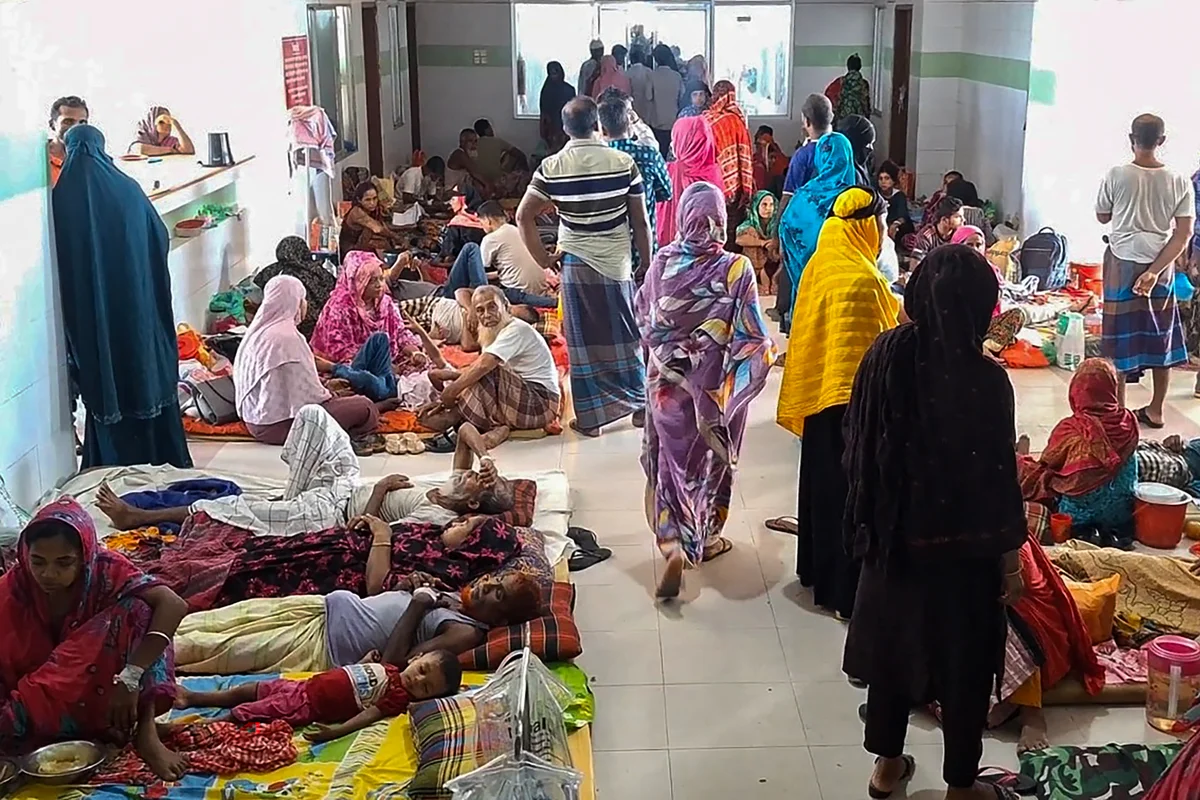By Ruma Paul
Copyright independent

Dengue infections are rapidly climbing across Bangladesh, with health officials reporting the year’s biggest single-day rise in both deaths and hospital admissions.
On Sunday, the Directorate General of Health Services confirmed 12 deaths and 740 new hospitalisations in the past 24 hours from the mosquito-borne disease, bringing the year’s nationwide death toll to at least 179, with nearly 42,000 infections.
Children are increasingly filling hospital wards, many arriving with high fever, rashes, and severe dehydration, with some developing critical complications.
“Children are more vulnerable to rapid fluid loss and shock, which makes severe dengue extremely dangerous for them”, said physician ABM Abdullah, urging parents not to ignore early symptoms like a persistent fever or bleeding gums.
Entomologists say changing weather patterns are worsening the outbreak. “The monsoon is stretching longer than usual, creating standing water almost everywhere.” said Kabirul Bashar, a zoology professor at Jahangirnagar University.
“This prolonged wet season is giving mosquitoes more time and space to breed, and it is intensifying the outbreak.”
Bangladesh’s rapid urbanisation, poor waste management, and stagnant water at construction sites have further expanded mosquito breeding grounds.
With hospitals under strain and infections climbing steadily, doctors fear the crisis will deepen in the coming weeks.
The crisis is being compounded by a rise in chikungunya cases. Unlike dengue, chikungunya rarely causes death but often leaves patients – both children and adults – suffering from severe joint pain and lingering weakness.
The worst year on record for Bangladesh was 2023, when dengue killed 1,705 people and infected more than 321,000. Experts fear that without stronger preventive measures such deadly cycles will continue.
Earlier this year scientists warned that the tropical virus could become a growing threat in London and other major European cities due to climate change.
It has been moving steadily northward in Europe since first appearing in Albania in 1979.
A new study published in Global Change Biology found the mosquito has accelerated its spread in France, moving from about four miles per year in 2006 to 12 miles per year in 2024.
The research team used climate and environmental modelling alongside two decades of data to track the movement and expansion of Aedes albopictus, the scientific name for the Asian tiger mosquito.



